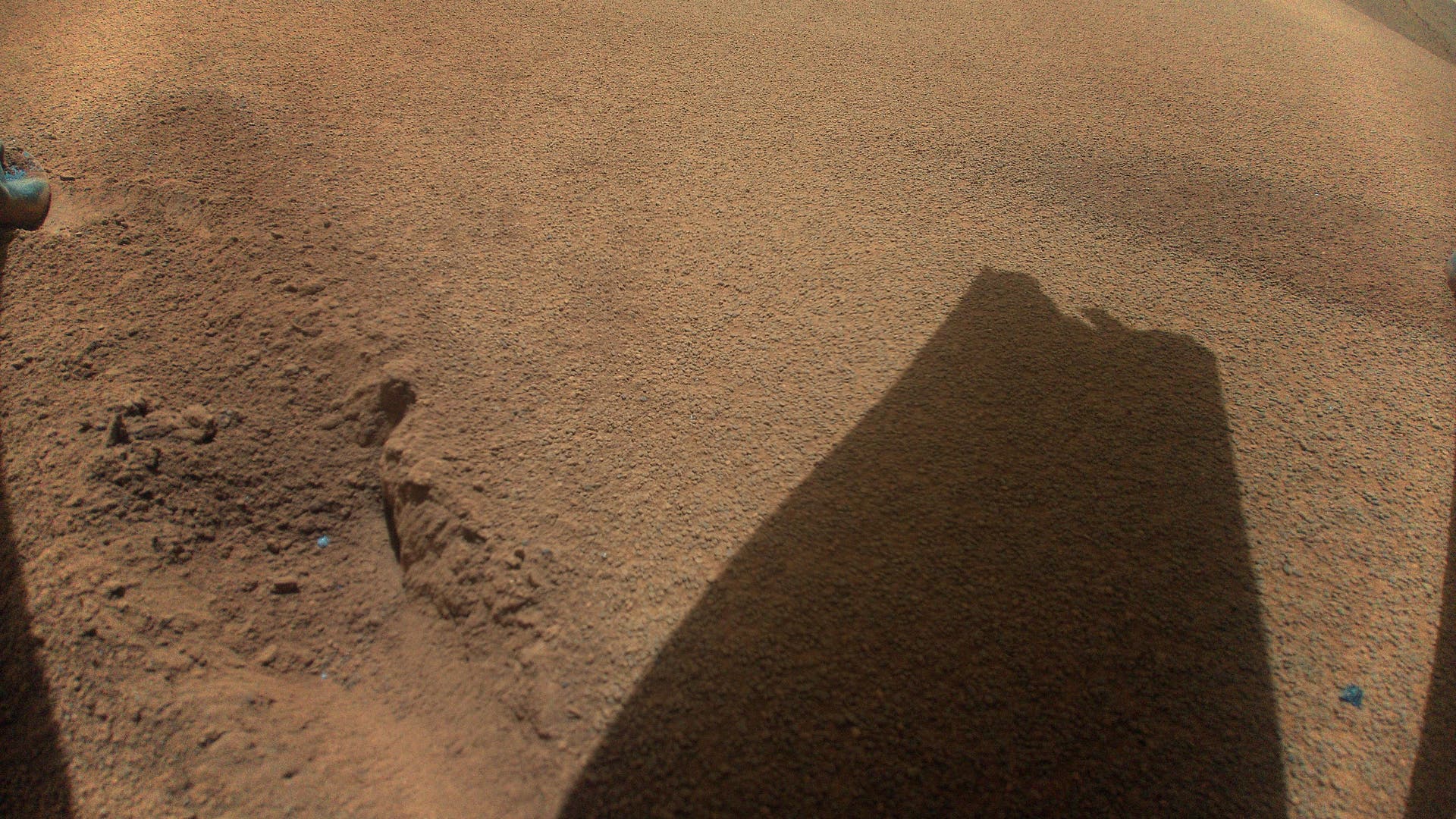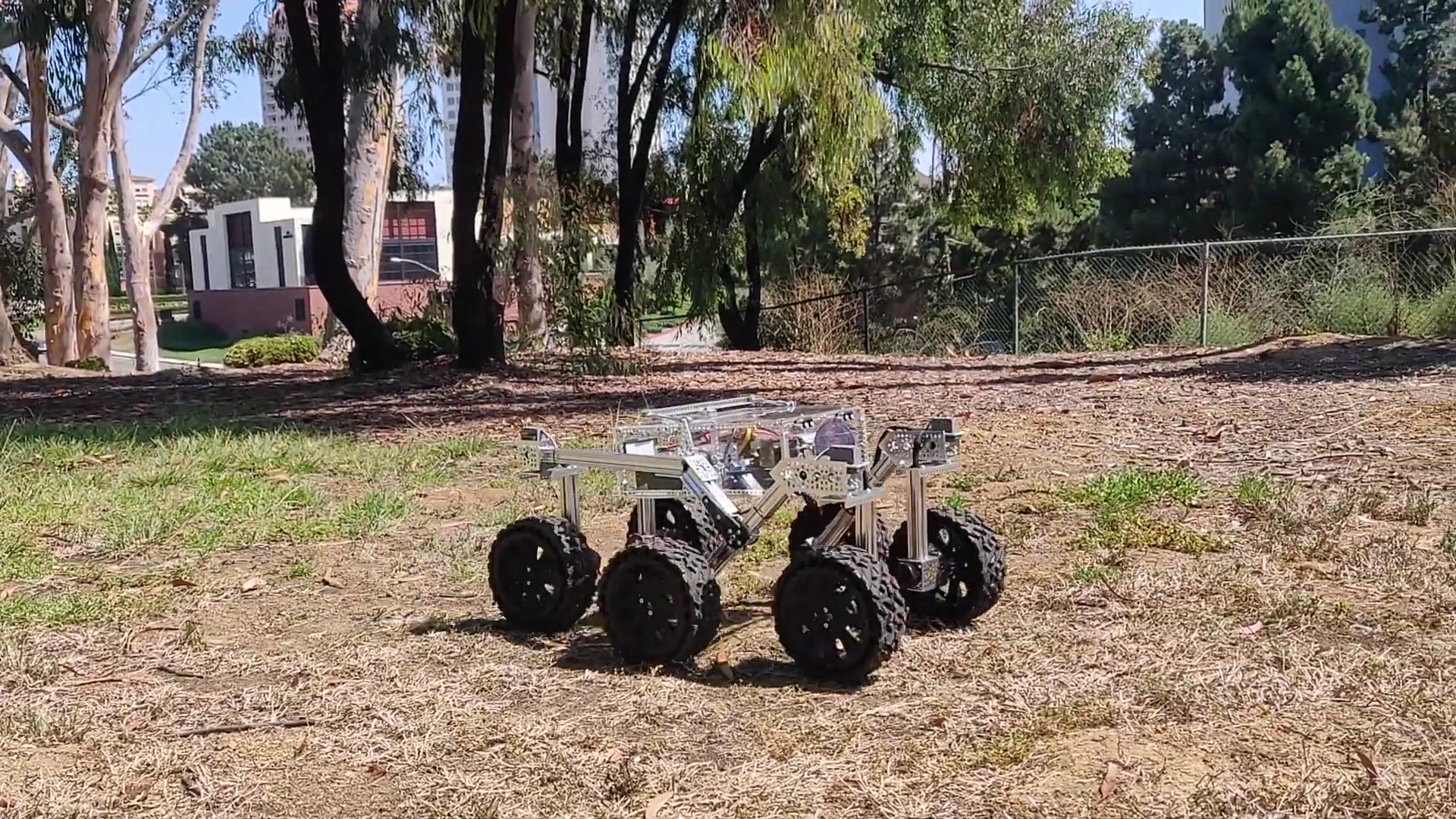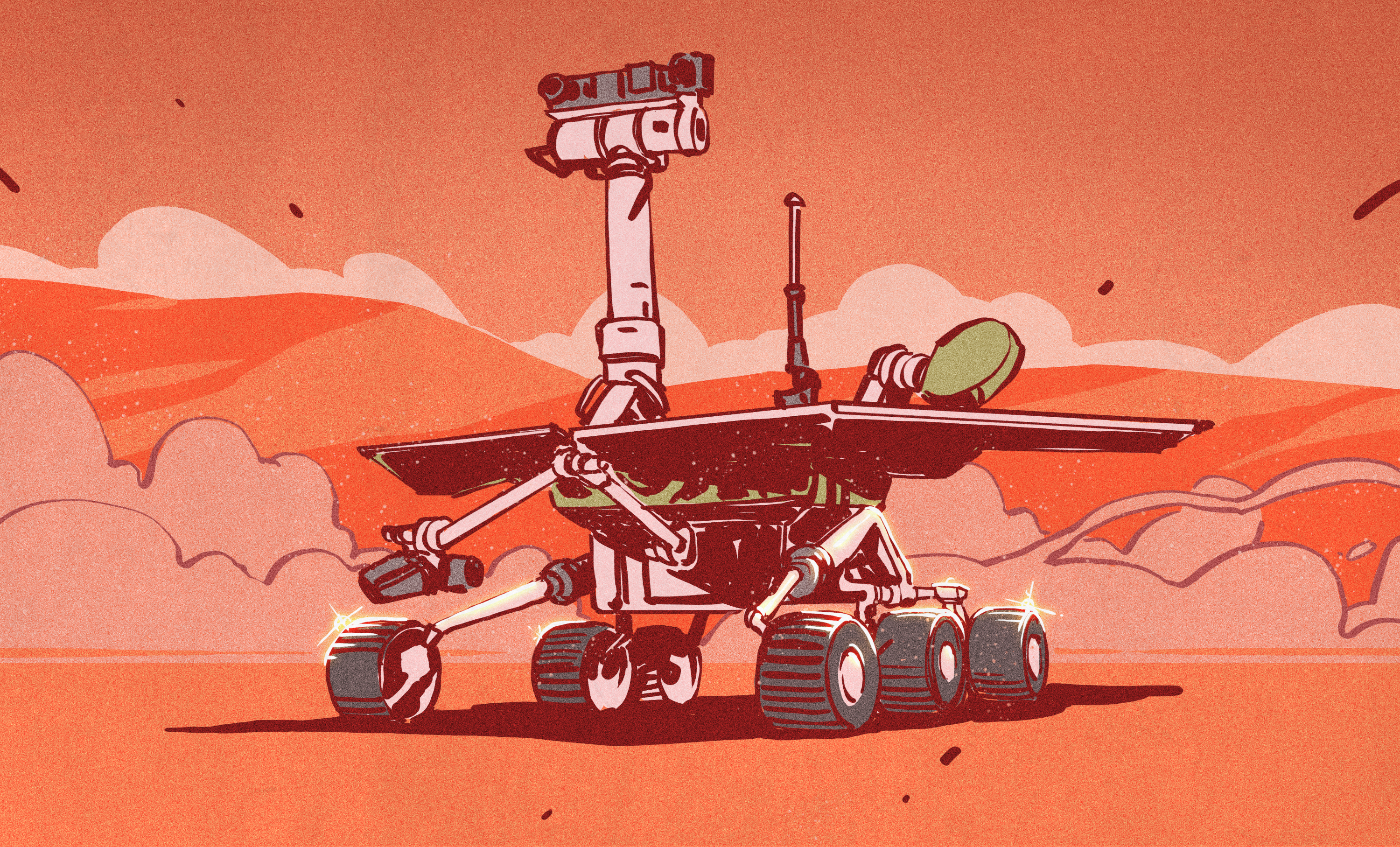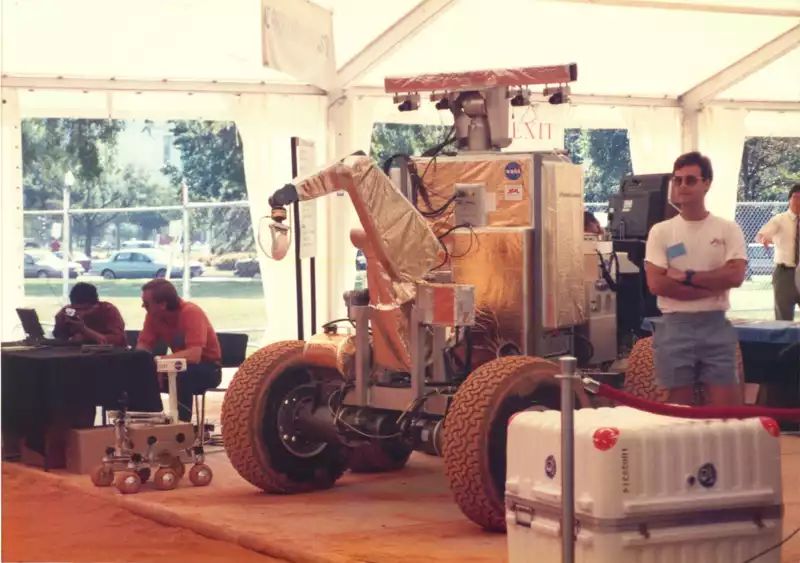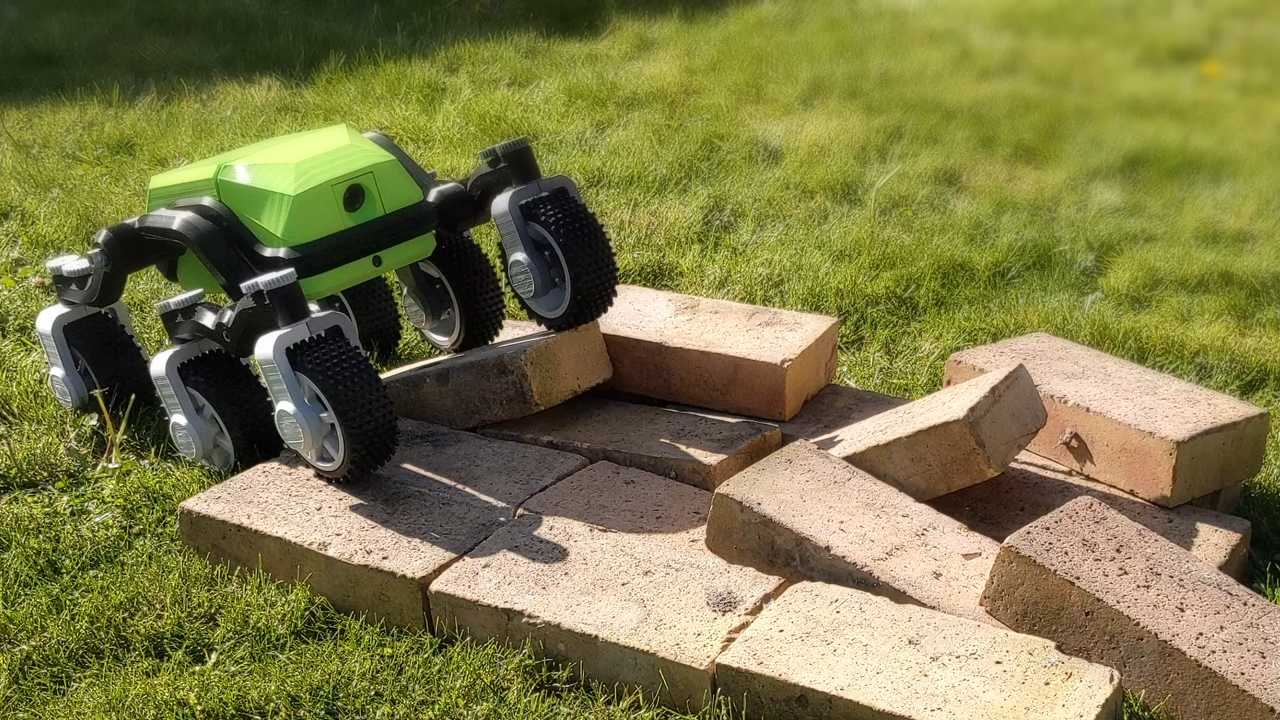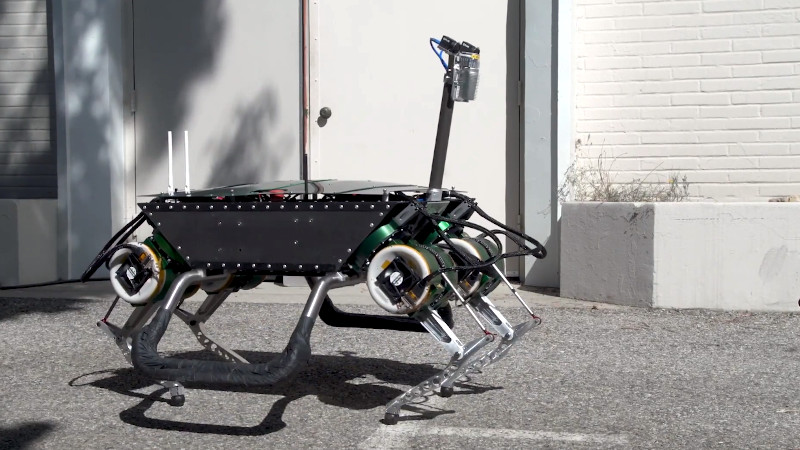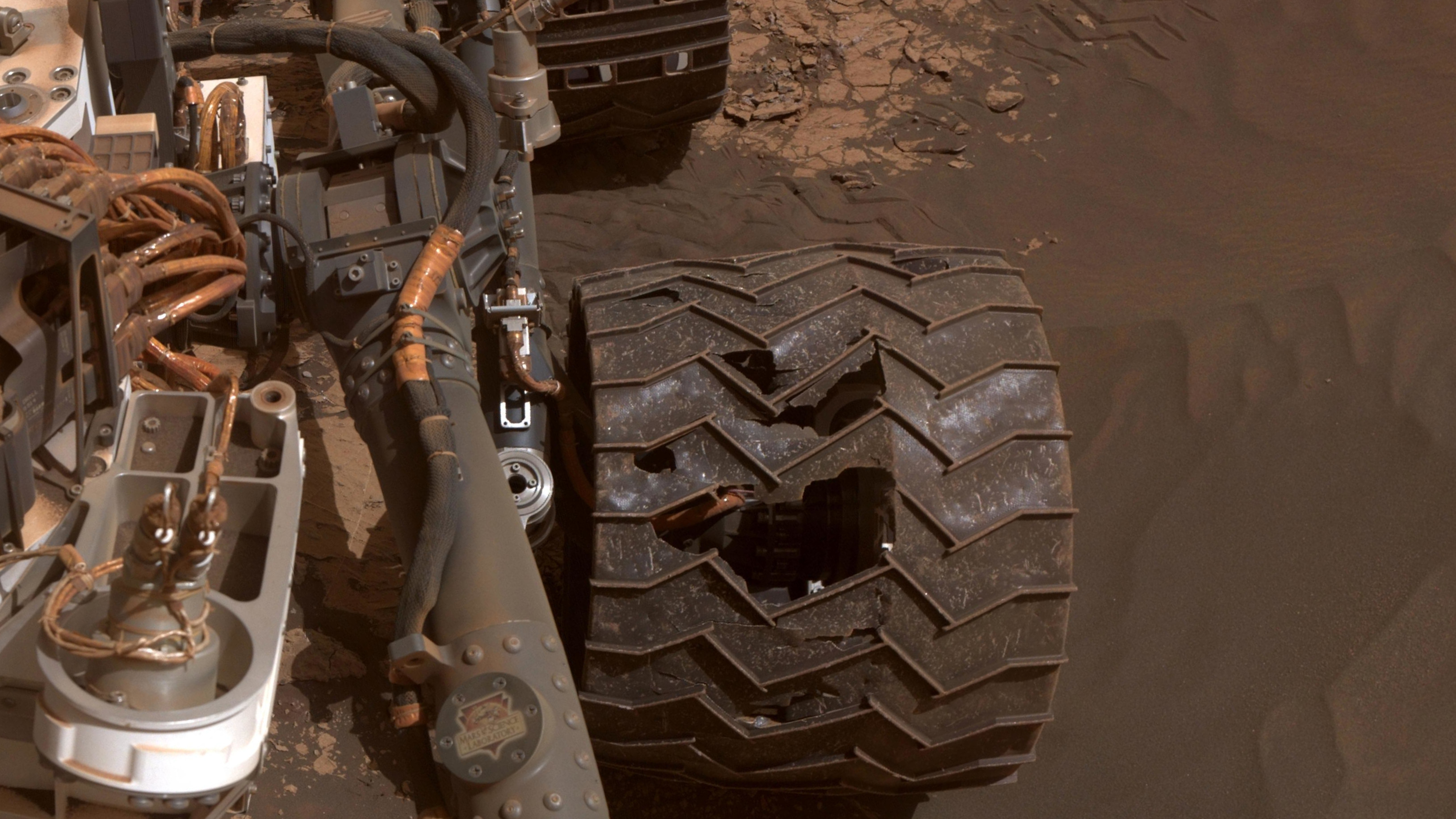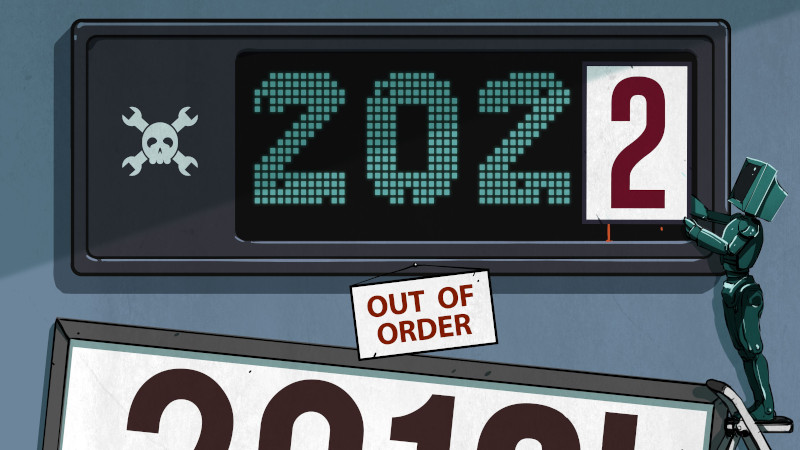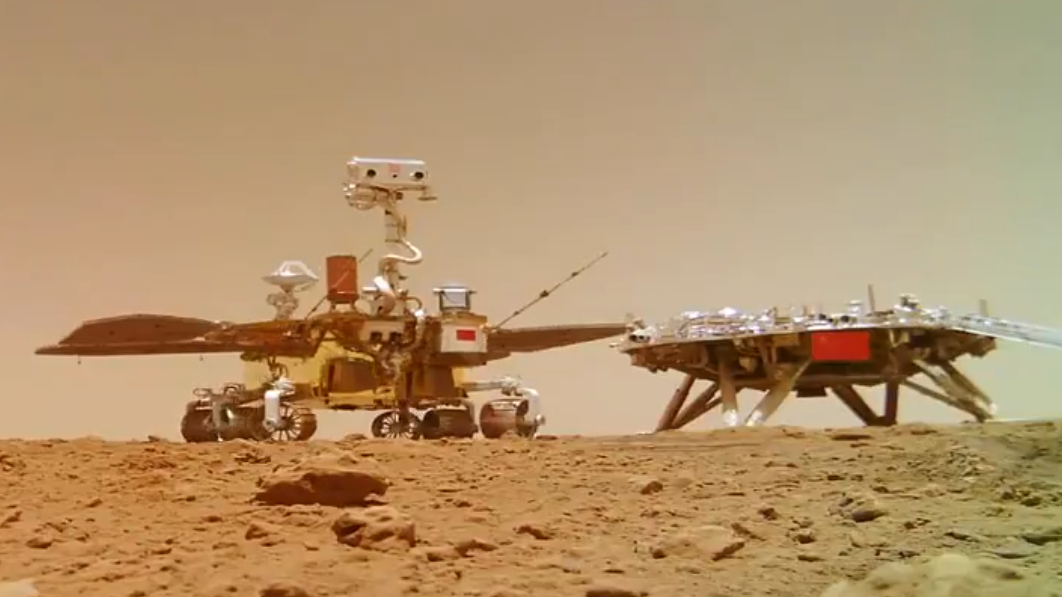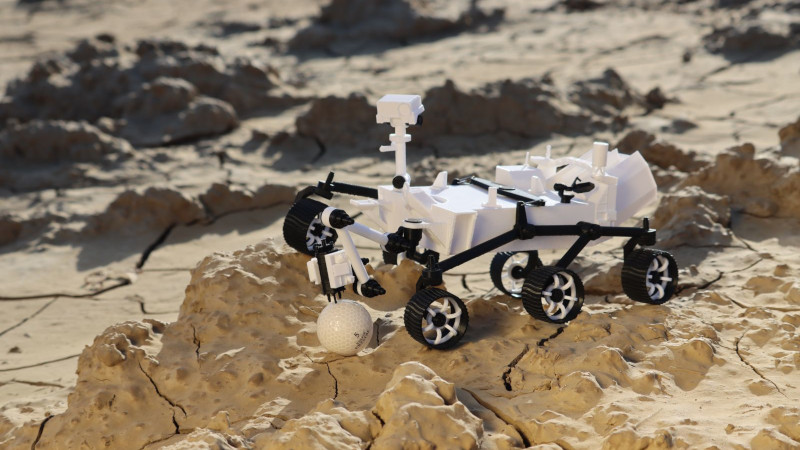Phobos und die Erde am Abendhimmel des Mars, so ein Bild gab es noch nie. Aufgenommen hat es der Marsrover Curiosity.#Phobos #Erde #RoterPlanet #Mars #Marsrover #Curiosity #Astronomie
Roter Planet: Guter Phobos, du gehst so stille
#marsrover
Der erste Hubschrauber, der je auf einem anderen Planeten unterwegs war, hat sich zum letzten Mal in die Luft erhoben. Beschädigte Rotorblätter lassen keine weiteren Flüge mehr zu.#Mars #RoterPlanet #Raumsonde #Ingenuity #Marshubschrauber #Marsdrohnen #Marshelikopter #Marsrover #Perseverance #Raumfahrt #Astronomie
Der letzte Flug des Marshelikopters Ingenuity
2 Likes
3 Likes
2 Likes
2 Likes
1 Shares
One person like that
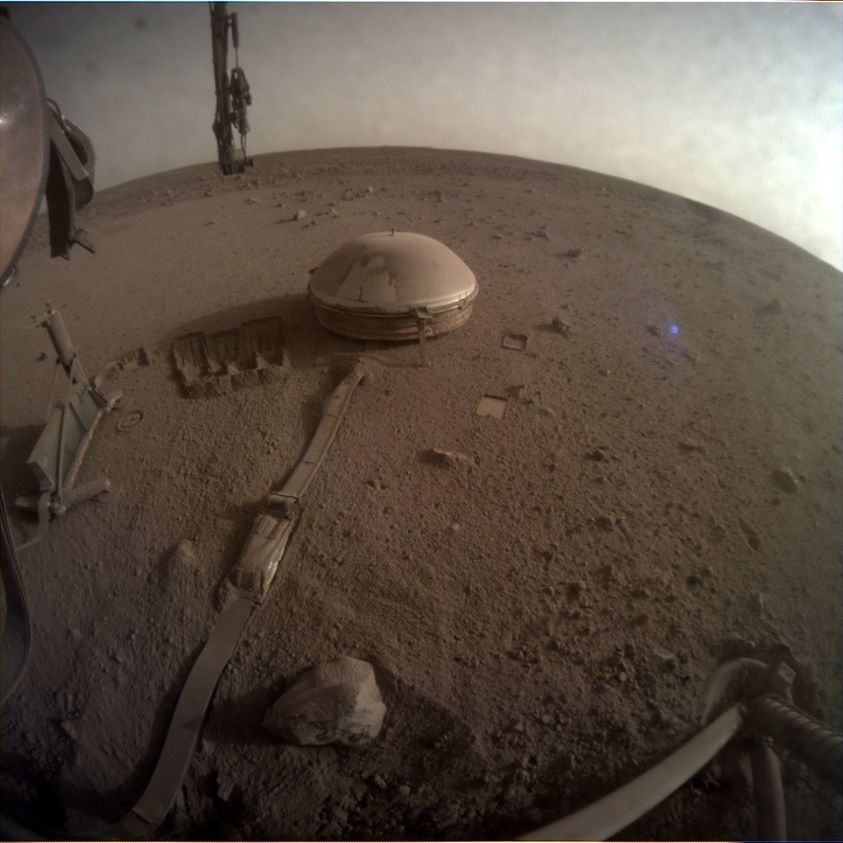
My power’s really low, so this may be the last image I can send. Don’t worry about me though: my time here has been both productive and serene. If I can keep talking to my mission team, I will – but I’ll be signing off here soon. Thanks for staying with me.
go.nasa.gov/3Mi4pKw
#Space #NASA #Mars #MarsRover #Astronomy #Science #Technology
6 Likes
1 Comments
Can You Help NASA Build A Mars Sim in VR?
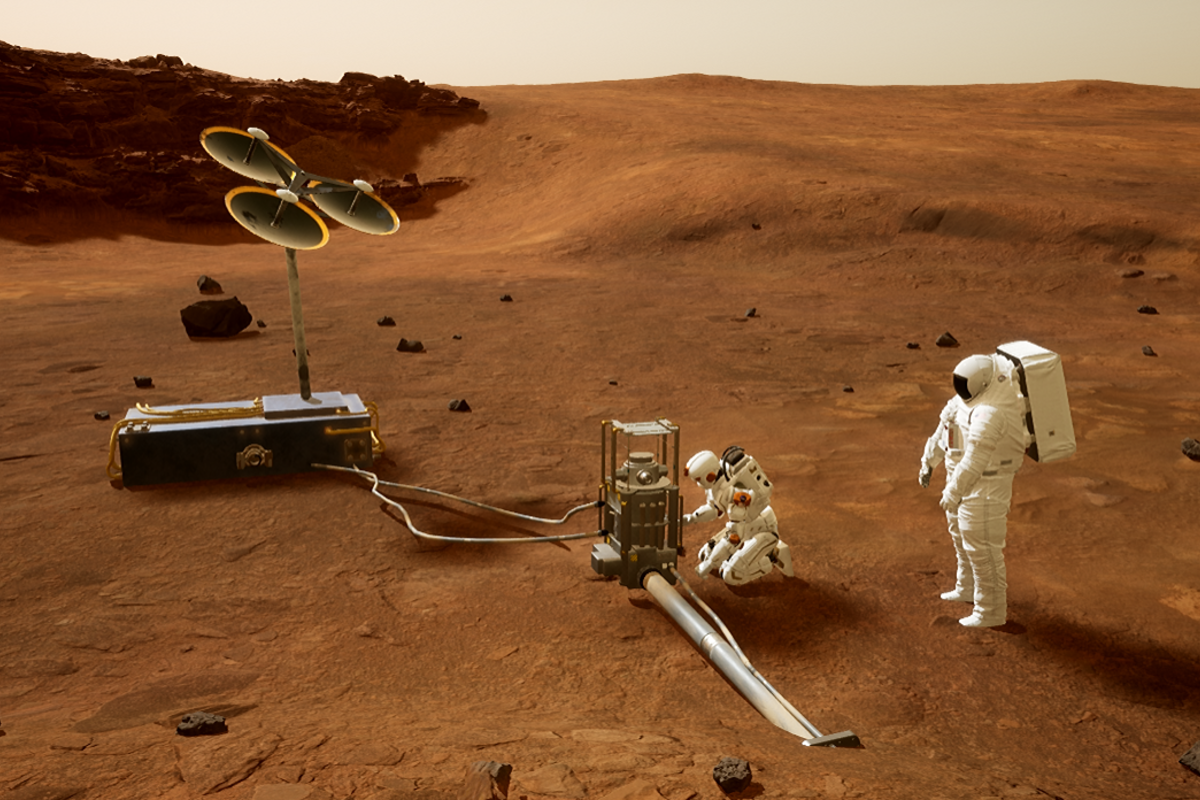
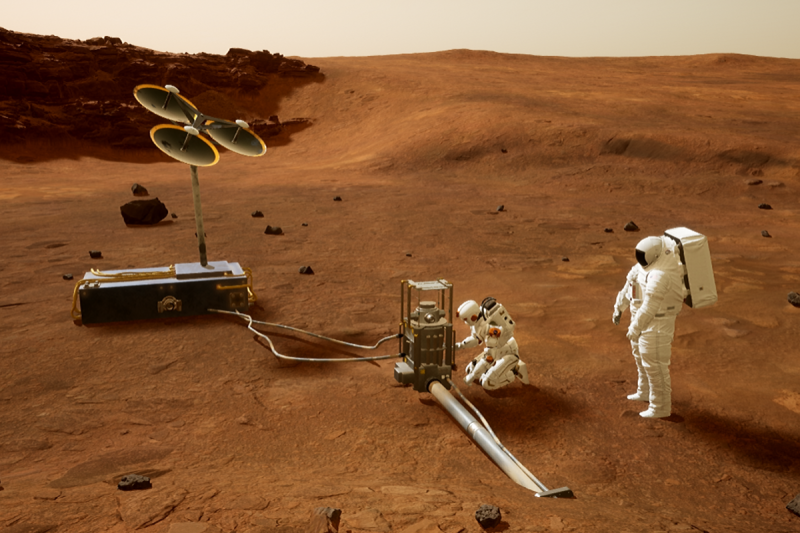
No matter your project or field of endeavor, simulation is a useful tool for finding out what you don't know. In many cases, problems or issues aren't obvious until you try and do something. Where doing that thing is expensive or difficult, a simulation can be a low-stakes way to find out some problems without huge costs or undue risks.
Going to Mars is about as difficult and expensive as it gets. Thus, it's unsurprising that NASA relies on simulations in planning its missions to the Red Planet. Now, the space agency is working to create a Mars sim in VR for training and assessment purposes. The best part is that you can help!
Why Simulate Mars?
 Sunset on Mars, as captured by NASA's Spirit rover in 2005. Even simple things like night and day are different on Mars compared to Earth, and could present complications to NASA's operations. Simulation will help find that out ahead of time. Credit: NASA, public domain
Sunset on Mars, as captured by NASA's Spirit rover in 2005. Even simple things like night and day are different on Mars compared to Earth, and could present complications to NASA's operations. Simulation will help find that out ahead of time. Credit: NASA, public domain
When it comes to things like rocket performance and calculating satellite trajectories, NASA is pretty well sorted when it comes to simulations. It's got crack teams of engineers and scientists that have spent decades improving these tools for the agency.
However, when it comes to putting astronauts on the surface of Mars, NASA doesn't really have a whole lot to go on. In future, astronauts could land on the planet, and be charged with a variety of tasks in the Martian environment. These could be as diverse as exploring on foot or on motorized conveyances, setting up permanent living facilities, or building and troubleshooting hardware to generate resources locally on the surface of Mars.
Humans have never undertaken any of these tasks before, and so it's difficult to know what challenges could be presented when future astronauts arrive on Mars. Ideally, we'd want a pretty good idea of what things will be like before astronauts are left to their own devices on a planet that's tens of millions of kilometers away. Getting to Mars and finding out your tools are too hard to use, or your living quarters are impractical, would be incredibly frustrating when it's too late to do anything about it.
It's Just Like Being There
Thus, a simulation is in order! The agency has done some of the ground work itself already, whipping up a Mars environment in Epic Games' Unreal Engine 5. Known as the Mars XR Operations Support System, the virtual environment simulates the conditions on the surface of Mars as they would be experienced by astronauts. The simulation is intended to be used with VR gear, to allow astronauts or others to feel and act as if they really are on the Red Planet.
Thus far, there's a simulated Martian day/night cycle with the appropriate sky conditions, along with the proper value for Martian gravity. There are working rovers, too, and changing weather conditions based on our best knowledge of Martian meteorology. The simulator includes a massive 400 km² (154 mile²) of terrain to traverse based on NASA's own research.
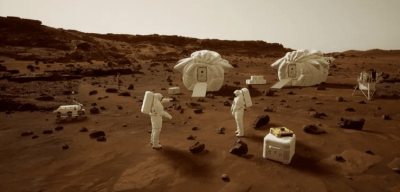 One of the challenge categories is "Set Up Camp." The intention is to create a simulation of setting up a Mars camp to see what challenges this might present to astronauts. Credit: NASA, public domain
One of the challenge categories is "Set Up Camp." The intention is to create a simulation of setting up a Mars camp to see what challenges this might present to astronauts. Credit: NASA, public domain
With all that done, NASA came to a new problem. The agency's Mars simulation is actually too accurate. Just like the planet itself, there isn't actually anything to do. This is where the public comes in. NASA has created the MarsXR Challenge, charging the public with the job of populating the Mars simulator with useful content. Naturally, the simulator needs to be filled with realistic assets and scenarios in order to be an effective training and investigative aid for NASA and its astronauts.
Seb Loze, Unreal Engine business director for simulations at Epic Games, notes the opportunity this affords those that get involved. “ Creators can use Unreal Engine to build realistic simulation scenarios to help prepare NASA for future missions, whether that’s to the moon or to Mars," said Loze, adding "Whether you’re a game designer, architect, hobbyist or rocket scientist, anyone can build with UE5, and we can’t wait to see the immersive simulations the community comes up with.”
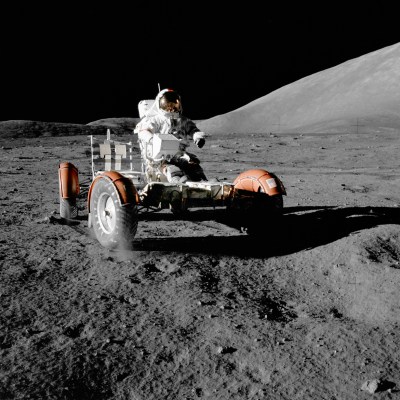 Astronauts famously used the Lunar Roving Vehicle to get around the Moon on later Apollo missions. We're sure few would pass up the chance to drive something similar on the surface of Mars. Credit: NASA, public domain
Astronauts famously used the Lunar Roving Vehicle to get around the Moon on later Apollo missions. We're sure few would pass up the chance to drive something similar on the surface of Mars. Credit: NASA, public domain
The competition is being hosted on crowdsourcing platform HeroX, which helps clients share projects with the broader public to find useful and unique solutions. As per the challenge website, there are five separate categories for competitors to get involved with. Four are task-oriented categories, including Set Up Camp, Scientific Research, Maintenance, and Exploration. The final category, Blow Our Minds, is an invitation for the creative and technically-adept to make something that simply impresses the judges beyond all expectation.
The challenge comes with a prize purse of $70,000, which will be shared across 20 individual prizes. Each category has four prizes, with the overall winner in each scoring $6,000 for their work. There's no need to limit yourself or your team, though. NASA welcomes multiple entries in multiple categories, and entrants are eligible for multiple prizes too.
You might have a great idea for a Martian medical simulation, or perhaps an exciting mission where astronauts drive out far into the red desert on something approximating the Lunar Roving Vehicle. Maybe you'd like to simulate a recovery operation to bring back the brave Spirit rover, which served with distinction and deserves to come home.
Whatever your ideas are, the submission deadline is July 27, 2022. Whip up an idea, put together your crew, and get to it!
#hackadaycolumns #space #mars #marsrover #nasa #simulation #simulator #virtualreality #vr
1 Shares
One person like that
One person like that
1 Shares
Ahoy folks,
I’m an just an #undergraduate #student of #physics, trying to set myself up to flirt with #astrophysics, with a weakness for and in #blackholes, though occassionaly ogling at her sister, #cosmology, but again pulled back to stare at #quasars through only my minds eye. Did I mention that I am #newhere? If not then, I should also mention that #instrumentation and #electronics too share alarge bit of my metaphorical heart, and I just love #interfacing; what's better, than to connect physical reality to a beast a.k.a a #computer? Well #micro-controllers? I just started using an #arduino, actually an #arduinouno ( #arduinounor3 ), currently learning programing and using it for small, if not infinitesimally small, if you can call them that is, #electronicsprojects; I will soon push myself to use an #expeyes. Yeah, #microcontrollers interest me, but, as much as do #microprocessors, #8085 being one, with which I've played a little, though only through simulations. I needn't shy away from stating that I love #programing, having some knowledge in #C, #C++, #java, a little bit of #fortran. I'm learning to #code or #script, whichever way you like, #python, rather it's newborn sibling, #python3. It's no need to say that my #operatingsystem of choice, use and love is a of course, a popular distribution of #linux, i.e. #xubuntu; #xfce is my and my PC's best bond of love, along with #bash and #zsh. I love watching #movies, especially heart-moving #warfilms, thought provoking #darkcomedies, saluted #satires, divinely appetizing #epics, #neoreals, that leave you speechless, and some more and more to come; I so love #shortfilms that I do wish to someday, #make one. Well, you may call me an amateur, but I am a #photographer, #photography, being one of my passtime passions, #astrophotography, being one of my dreams, not having been able to capture a proper one yet. I have only taken part in a few well-known #photowalks, spread through social-media.
You know, like me or not, I strongly believe in #foss, especially #fosss, being a #privacy and #security concerned person, if not a #customization freak, an embryo of a #hacker and of course a #linuxlover. If that seems a bit commonplace, well it is, then I also happen to be a fan of a #marsrover; ah! #mars or Jasoom, call it what may, it's lovely. But lovelier are the #rovers that graze on it's surface. I so wish that I had a pet #quadcopter alongside my late pet #cat. Cool is the only word I can have for #robots; ah! #robotics, what a sweet art art thou. Though a little sweeter would be #cognition, whose daughter #ai is a sweet child, I wish was mine. Can #intelligence be #artificial? Or is it just another #random #oxymoron, that a #language is filled with, that #linguistics deals with? Or maybe I'm just writing a #microtale. But then, #microtales are so lovely. Be it in #english or #bengali, rather #bangla, or #hindi or #german; though for #deutsch I still need a dictionary. At least #scrabble and #hangman are still in english for me. But yes, I just happened to fall in love with #html5 and #markdown.

